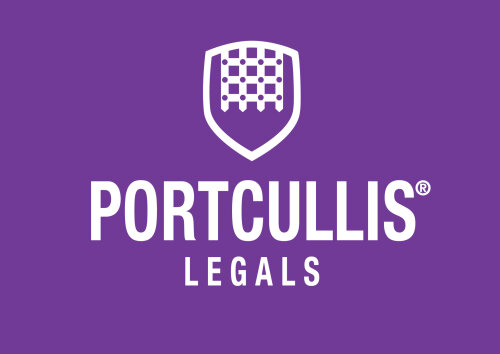Best Private Client Lawyers in Plymouth
Share your needs with us, get contacted by law firms.
Free. Takes 2 min.
List of the best lawyers in Plymouth, United Kingdom
About Private Client Law in Plymouth, United Kingdom
Private Client law covers legal services intended for individuals and families, often focusing on managing personal assets, inheritance, and future planning. In Plymouth, United Kingdom, this includes areas such as drafting wills, administering estates, setting up trusts, planning for tax efficiency, powers of attorney, and providing legal guidance for elderly clients or those with vulnerable family members. With the region's unique blend of urban and rural communities and a growing population, Private Client solicitors in Plymouth play a vital role in helping residents safeguard their financial futures and protect their loved ones.
Why You May Need a Lawyer
There are many life events and situations where people in Plymouth might need assistance from a Private Client lawyer. Some common reasons include:
- Drafting a will to ensure your wishes are honored after your death
- Administering the estate of a loved one who has passed away
- Setting up trusts to protect assets for children, vulnerable relatives, or for tax planning
- Making decisions about inheritance tax and estate planning
- Creating or updating powers of attorney so someone can make decisions for you if you become unable to do so
- Dealing with issues of mental incapacity, such as Court of Protection applications
- Planning for long-term care or navigating the funding of care homes
- Resolving disputes around wills, inheritance, or the administration of estates
- Gifting assets while alive and understanding the legal and tax consequences
- Supporting charities or philanthropic aims through estate planning
Local Laws Overview
Private Client law in Plymouth is governed primarily by national UK legislation, but local factors and the practice of regional courts can also play a role. Key aspects include:
- Wills: To be valid in Plymouth, a will must comply with the Wills Act 1837, requiring proper signatures and witness arrangements. Lawyers can help avoid pitfalls that invalidate a will.
- Probate: When someone dies, estate administration goes through the probate process. The local Plymouth Probate Registry supports these proceedings.
- Inheritance Tax: Estates above a certain threshold are liable for Inheritance Tax, depending on assets, location, and relationships. Strategic planning can minimise tax owed.
- Trusts: Trusts can be established for a variety of purposes, and their administration is subject to both UK law and HMRC oversight.
- Lasting Powers of Attorney (LPA): These documents must be registered with the Office of the Public Guardian. Local solicitors can complete and submit the required forms.
- Intestacy: If someone dies without a will, assets are distributed according to statutory rules, which may not reflect your wishes - making expert clarity crucial.
- Dispute Resolution: Local county courts in Plymouth can handle contentious probate and will disputes.
Frequently Asked Questions
What is the difference between a will and a trust?
A will is a legal document stating how your assets should be distributed after your death, while a trust is a legal arrangement allowing a third party (trustee) to hold assets for beneficiaries, often used for managing assets during your life and after.
How do I write a valid will in Plymouth?
Your will must be in writing, signed by you in the presence of two independent witnesses, who must also sign to confirm they saw you sign. A lawyer can help ensure the will is legally valid and accurately reflects your wishes.
What happens if someone in Plymouth dies without a will?
Their estate is distributed by the laws of intestacy. Assets go to relatives in a strict order set by law, which may not match the deceased’s wishes.
What is probate and when is it necessary?
Probate is the legal process of managing a deceased person's estate. It is needed if the estate has certain assets, such as property or significant bank funds, in the deceased’s sole name.
How can I reduce Inheritance Tax on my estate?
Planning ahead by gifting assets, benefiting from inheritance tax thresholds, setting up trusts, or giving to charity can all help reduce the tax your estate may owe. A lawyer can explain your options based on your specific circumstances.
What is a Lasting Power of Attorney (LPA)?
An LPA is a legal document letting you appoint someone to make financial or health decisions on your behalf if you become unable to do so yourself.
Can I challenge a will in Plymouth?
Yes, you can contest a will if you believe there was undue influence, lack of capacity, insufficient formalities, or if you were financially dependent and not adequately provided for. Legal advice is essential in these cases.
How are trusts used in estate planning?
Trusts can manage how and when your assets are distributed. They’re often used for underage children, family members with disabilities, or for tax planning.
What is the role of an executor?
An executor is named in a will and is responsible for carrying out the instructions of the will, managing the estate, paying debts, and distributing assets to beneficiaries.
What are my options if I cannot manage my own affairs?
You can set up a Lasting Power of Attorney while you have capacity. If you become unable to make decisions and have no LPA, the Court of Protection may appoint a deputy to manage your affairs.
Additional Resources
If you need further help or information regarding Private Client matters in Plymouth, the following resources can be helpful:
- The Law Society - Find a solicitor with expertise in wills, probate, and trusts
- Citizens Advice Plymouth - Offers free, confidential advice on many legal matters
- Plymouth Probate Registry - Handles applications for grants of probate and letters of administration
- Office of the Public Guardian - Guides and support for powers of attorney and mental capacity issues
- Gov.uk - Official government information on wills, probate, trusts, and inheritance tax
- Solicitors for the Elderly - For help with issues facing older or vulnerable people
- Age UK Plymouth - Advice and resources tailored to older residents
Next Steps
If you believe you need legal assistance with any Private Client matter in Plymouth, the best first step is to consult a qualified solicitor. Many offer an initial consultation to review your situation and explain your options. Gather any key documents, such as existing wills, property deeds, or financial statements, before your meeting. Take notes about your wishes and any concerns you have. Acting early can help you make informed choices, protect your loved ones, and avoid costly legal disputes in the future.
For complex or contested situations, especially involving large estates or disputes, professional legal advice can save time, costs, and stress. Do not hesitate to reach out to local support organizations for guidance or signposting to appropriate professionals.
Lawzana helps you find the best lawyers and law firms in Plymouth through a curated and pre-screened list of qualified legal professionals. Our platform offers rankings and detailed profiles of attorneys and law firms, allowing you to compare based on practice areas, including Private Client, experience, and client feedback.
Each profile includes a description of the firm's areas of practice, client reviews, team members and partners, year of establishment, spoken languages, office locations, contact information, social media presence, and any published articles or resources. Most firms on our platform speak English and are experienced in both local and international legal matters.
Get a quote from top-rated law firms in Plymouth, United Kingdom — quickly, securely, and without unnecessary hassle.
Disclaimer:
The information provided on this page is for general informational purposes only and does not constitute legal advice. While we strive to ensure the accuracy and relevance of the content, legal information may change over time, and interpretations of the law can vary. You should always consult with a qualified legal professional for advice specific to your situation.
We disclaim all liability for actions taken or not taken based on the content of this page. If you believe any information is incorrect or outdated, please contact us, and we will review and update it where appropriate.
Browse private client law firms by service in Plymouth, United Kingdom
Plymouth, United Kingdom Attorneys in related practice areas.









